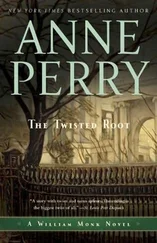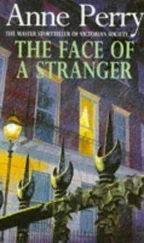Anne Perry - The Sins of the Wolf
Здесь есть возможность читать онлайн «Anne Perry - The Sins of the Wolf» весь текст электронной книги совершенно бесплатно (целиком полную версию без сокращений). В некоторых случаях можно слушать аудио, скачать через торрент в формате fb2 и присутствует краткое содержание. Год выпуска: 0101, Жанр: Исторический детектив, на английском языке. Описание произведения, (предисловие) а так же отзывы посетителей доступны на портале библиотеки ЛибКат.
- Название:The Sins of the Wolf
- Автор:
- Жанр:
- Год:0101
- ISBN:нет данных
- Рейтинг книги:5 / 5. Голосов: 1
-
Избранное:Добавить в избранное
- Отзывы:
-
Ваша оценка:
- 100
- 1
- 2
- 3
- 4
- 5
The Sins of the Wolf: краткое содержание, описание и аннотация
Предлагаем к чтению аннотацию, описание, краткое содержание или предисловие (зависит от того, что написал сам автор книги «The Sins of the Wolf»). Если вы не нашли необходимую информацию о книге — напишите в комментариях, мы постараемся отыскать её.
The Sins of the Wolf — читать онлайн бесплатно полную книгу (весь текст) целиком
Ниже представлен текст книги, разбитый по страницам. Система сохранения места последней прочитанной страницы, позволяет с удобством читать онлайн бесплатно книгу «The Sins of the Wolf», без необходимости каждый раз заново искать на чём Вы остановились. Поставьте закладку, и сможете в любой момент перейти на страницу, на которой закончили чтение.
Интервал:
Закладка:
He ought to be able to recognize him on the platform. His stance was individual enough, and he was that fraction taller than average. Where on earth was he? For the fifth time he glanced at the station clock. Ten to nine. Perhaps he was not here yet? It was still early. The best thing would be to go through the train itself.
He traced his steps to the end closest to the buffers, pushing his way through the thickening crowd, and boarded the train, looking into every compartment to see if Monk were there. Every so often he glanced out of the window as well, and it was on one of those occasions, about halfway along the length of the train, and already seven minutes past nine, that he saw Monk’s face for an instant as he passed by, outside, hurrying along the platform.
Rathbone swore in a mixture of anger and relief, and pushing past a large gentleman in black, flung open the carriage door and almost fell out.
“Monk!” he shouted loudly. “Monk!”
Monk turned. He was dressed as elegantly as if he were on the way to dine out. His coat was beautifully cut, slender and hanging without a wrinkle, his boots were polished to a satin gleam. He looked surprised to see Rathbone, but not discomforted.
“Have you found something?” he said in surprise. “Already? You can’t have heard back from Edinburgh, so what is it?”
“I haven’t found anything,” Rathbone said, wishing passionately that he had. “I merely came to see if there was anything else upon which we should confer while there is still the opportunity.”
A shadow of disappointment crossed Monk’s eyes, so slight that had Rathbone been less perceptive he would have missed it altogether. He almost forgave the perfect coat.
“I know of nothing,” Monk replied coldly. “I shall report to you by mail, whatever I learn of use. Impressions I shall keep until I return. It would be useful if you would do the same for me, assuming you do find anything. I shall inform you of my address as soon as I have lodgings. Now I am going to take my seat, before the train leaves without me. That would serve neither of us.” And without any further form of farewell, he turned and walked towards the nearest carriage door and climbed in, slamming it behind him, leaving Rathbone standing on the platform swearing under his breath, feeling offended, inadequate, and as if there were something else he should have said.
Chapter 5
Monk did not enjoy the journey in any respect at all. The encounter on the platform with Rathbone gave him some sense of satisfaction because it demonstrated how acutely concerned Rathbone was. It would have taken an emotional involvement of extraordinary depth to cause him to abandon his dignity sufficiently to come on such a completely pointless errand. Normally, if nothing else, his awareness of Monk’s perception of it would have been enough to keep him at home.
But the comfort all that gave him very quickly wore off as the train steamed and rattled its way out of the station and through the rain-soaked darkness of the London rooftops and the occasional glimpse in gaslight of emptying streets, wet cobbles gleaming, lamps haloed in mist, here and there a hansom about to do business.
He imagined Rathbone returning to his office to sit behind his desk shuffling papers uselessly and trying to think what to do that would help, and Hester alone in the narrow cell in Newgate, frightened, huddling beneath the thin blankets, hearing the hard sound of boot heels on the stone floor and the clang of keys in the lock, seeing the hatred in the wardresses’ faces. And he had no illusions about that. They thought her guilty of a despicable crime; there would be no pity. The fact that she had not yet been tried would weigh little with them.
Why couldn’t Hester be like other women, and choose a more sensible occupation? What normal woman traveled all over the place, alone, to nurse people she had never even met? Why did he bother himself with her? She was bound to meet with disaster some time or other. It was only extraordinary good luck she had not encountered it already in the Crimea. And he was stupid to allow his feelings to be engaged at all. He did not like the kind of woman she was, he never had. Almost everything about her irritated him in one way or another.
But then common humanity required that he do everything he could to help. People trusted Mm, and so far as he knew, he had never betrayed a trust in his life. At least not intentionally. He had failed his mentor, years ago, that much he now remembered. But that was different It was a failure through lack of ability, not in any way because he had not tried everything he could. It was not kindness; every evidence he had discovered about himself showed he was not a kind man. But he was honorable. And he had never suffered injustice.
No. He winced and smiled bitterly. That was untrue. He had never suffered legal injustice. He had certainly been unjust often enough himself-unjust to his juniors, overcrit-ical, too quick to judge and to blame.
But however much it hurt, there was no point wallowing in the past. Nothing could change it. The future lay in his own power. He would find out who had killed Mary Farraline, and why, and he would prove it. Apart from his own pride, Hester deserved that. She was frequently foolish, almost always overbearing, acid-tongued, opinionated and arbitrary; but she was totally honest. Whatever she said about the journey from Edinburgh would be the truth. She would not even lie to herself to cover a mistake, let alone to anyone else. And this was a rare quality in anyone, man or woman.
And of course she had not killed Mary Farraline. The idea was ludicrous. She might have killed someone in outrage-she would certainly have the courage and the passion-but never for gain. And if she had killed someone she deemed to be monstrous enough to warrant such an act, she would not have done it that way. She would have done it face-to-face. She would have struck her over the head, or stabbed her with a blade, not poisoned her in her sleep. There was nothing devious in Hester. Above all else, she had courage.
Hester would survive this. She had suffered worse in the Crimea, physical hardships of a greater order, terrible cold, probably hunger too, weeks without proper sleep-and danger as well, danger of injury or disease, or both. She had been on the battlefield within sound of the guns, within range of them, for all he knew. Of course she would survive a week or two in Newgate. It was absurd to be frightened for her. She was not an ordinary woman to faint or weep in the face of hardship. She would suffer, of course, she was as susceptible as anyone else, but she would rise above it.
His part was to go to the Farraline house and learn the truth.
But as the evening lengthened into night and those around him drifted into weary sleep, the sanguine mood left him, and all he could see as he grew colder and stiffer and more tired was the difficulty of discovering anything useful from a household in mourning, closed in on itself, where one member was guilty of murder and they had the perfect scapegoat in an outsider already accused and charged.
By morning his back ached, his leg muscles were jumping with the long lack of either comfort or exercise, and he was so cold his feet had lost all sensation. His mood and his temper were equally poor.
Edinburgh was bitterly cold, but at least it was not raining. An icy wind howled down Princes Street, but Monk had no interest in either its history or its architectural beauties, so he was perfectly happy to hail the first cab he saw and give the driver the Farralines’ address in Ainslie Place.
From the footpath the house was certainly imposing enough. If the Farralines owned it freehold and without mortgage, then they were, financially at least, in very good fortune indeed. It was also, in Monk’s opinion, in excellent taste. Indeed, the classical simplicity of the whole square appealed to him.
Читать дальшеИнтервал:
Закладка:
Похожие книги на «The Sins of the Wolf»
Представляем Вашему вниманию похожие книги на «The Sins of the Wolf» списком для выбора. Мы отобрали схожую по названию и смыслу литературу в надежде предоставить читателям больше вариантов отыскать новые, интересные, ещё непрочитанные произведения.
Обсуждение, отзывы о книге «The Sins of the Wolf» и просто собственные мнения читателей. Оставьте ваши комментарии, напишите, что Вы думаете о произведении, его смысле или главных героях. Укажите что конкретно понравилось, а что нет, и почему Вы так считаете.











